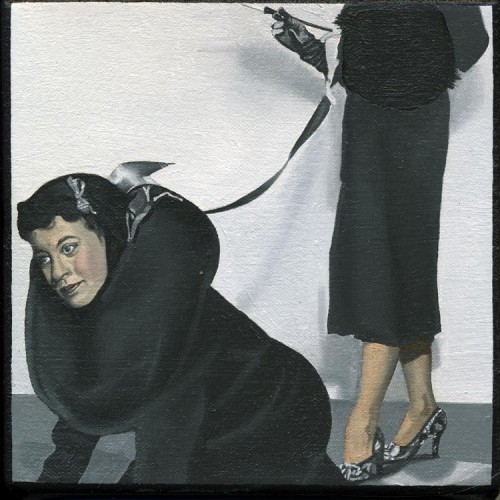"The stranger, remarks the sociologist Georg Simmel, learns the art of adaptation more searchingly, if more painfully, than people who feel entitled to belong, at peace with their surrounding. In Simmel’s view, the foreigner also holds up a mirror to the society into which he or she enters, since the foreigner cannot take for granted ways of life that seem to natives just natural. So great are the changes required to alter humankind’s dealings with the physical world that only this sense of self-displacement and estrangement can drive the actual practices of change and reduce our consuming desires; the dream of dwelling in equilibrium and at peace with the world risks, in my view, … [Read more...]
Archives for May 2016
Artificial Pains in Artificial Feet
"I see photography as a very classical medium, with of course all kind of genres—portrait, abstract, science photography, and so on. What I am also interested in right now is the negative, since it seems that it is going to disappear soon. When I ask my nine-year-old daughter, “What’s a negative?” she can’t say, as she knows only digital photography." Thomas Ruff (interview Apeture) "The modern world develops a technology increasingly alienated from everyday experience. This is an effect of capitalism that restricts control of design to a small dominant class and its technical servants. The alienation has the advantage of opening up vast new territories for exploitation … [Read more...]
Utopia or Abeline?
"The category of the Utopian, then, besides its usual and justly depreciatory meaning, possesses this other meaning – which, far from being necessarily abstract and turned away from the world, is on the contrary centrally preoccupied with the world: that of going beyond the natural march of events." Ernst Bloch (The Principle of Hope) "Modernity today is not what it used to be." Peter Wagner "The propertied class and the proletarian class represent the same human alienation. But the former feels well and self-confirmed in this self-alienation. It knows this alienation and sees in it its own impotence and the reality of an inhuman existence”. Marx (The Holy Family) Several … [Read more...]
The Cunning of Unreason
"When, in the summer of 1953, that is, still during my university studies in Bonn, I read a recently published lecture by Heidegger from the year 1935, the Introduction to Metaphysics, the jargon, the choice of terminology and the style told me at once that the spirit of fascism was manifested in these motives, thoughts and phrases." Jurgen Habermas (conversation with Michaël Fœssel) "If we tried to establish the political doctrine that rises from Heidegger’s fundamental ontology, we might conclude that it is fundamentally totalitarian. In Heidegger’s philosophy, all social spheres are alienated from man and are but the means for man’s integration into the ruling order. Man does not … [Read more...]




